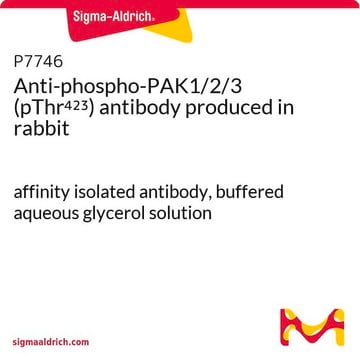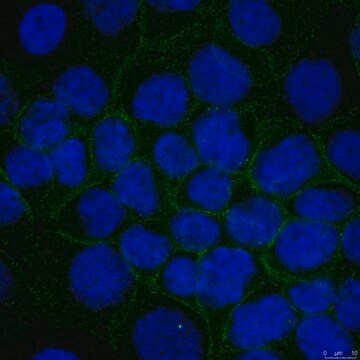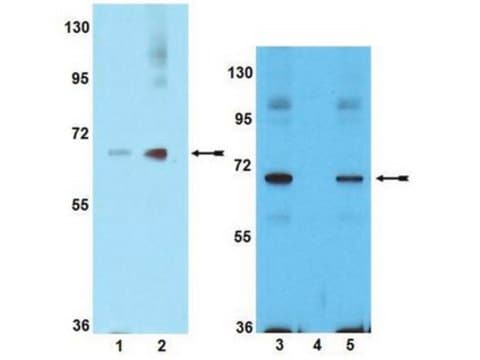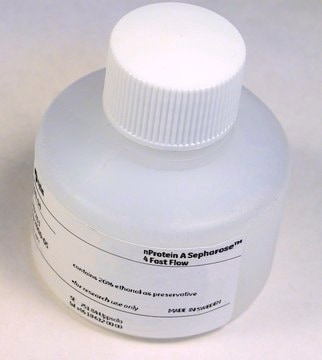Wichtige Dokumente
P3237
Anti-phospho-PAK1 (pThr212) antibody, Mouse monoclonal
clone PK-18, purified from hybridoma cell culture
About This Item
Empfohlene Produkte
Biologische Quelle
mouse
Qualitätsniveau
Konjugat
unconjugated
Antikörperform
purified from hybridoma cell culture
Antikörper-Produkttyp
primary antibodies
Klon
PK-18, monoclonal
Form
buffered aqueous solution
Mol-Gew.
antigen 68 kDa
Speziesreaktivität
human, mouse, rat
Konzentration
~2 mg/mL
Methode(n)
immunocytochemistry: suitable
indirect ELISA: suitable
microarray: suitable
western blot: 0.2-0.4 μg/mL using a whole extract of transfected and activated COS-7 (monkey kidney) cells expressing phosphorylated PAK1
Isotyp
IgG1
UniProt-Hinterlegungsnummer
Versandbedingung
dry ice
Lagertemp.
−20°C
Posttranslationale Modifikation Target
phosphorylation (pThr212)
Angaben zum Gen
human ... PAK1(5058)
mouse ... Pak1(18479)
rat ... Pak1(29431)
Allgemeine Beschreibung
Monoclonal Anti-Phospho-PAK1 (pThr212) reacts specifically with human PAK1 phosphorylated at Thr212 (68 kDa), and does not detect the unphosphorylated epitope.
Immunogen
Anwendung
- enzyme linked immunosorbent assay (ELISA)
- immunoblotting
- immunohistochemistry
Biochem./physiol. Wirkung
Physikalische Form
Haftungsausschluss
Sie haben nicht das passende Produkt gefunden?
Probieren Sie unser Produkt-Auswahlhilfe. aus.
Lagerklassenschlüssel
10 - Combustible liquids
WGK
WGK 3
Flammpunkt (°F)
Not applicable
Flammpunkt (°C)
Not applicable
Analysenzertifikate (COA)
Suchen Sie nach Analysenzertifikate (COA), indem Sie die Lot-/Chargennummer des Produkts eingeben. Lot- und Chargennummern sind auf dem Produktetikett hinter den Wörtern ‘Lot’ oder ‘Batch’ (Lot oder Charge) zu finden.
Besitzen Sie dieses Produkt bereits?
In der Dokumentenbibliothek finden Sie die Dokumentation zu den Produkten, die Sie kürzlich erworben haben.
Unser Team von Wissenschaftlern verfügt über Erfahrung in allen Forschungsbereichen einschließlich Life Science, Materialwissenschaften, chemischer Synthese, Chromatographie, Analytik und vielen mehr..
Setzen Sie sich mit dem technischen Dienst in Verbindung.








